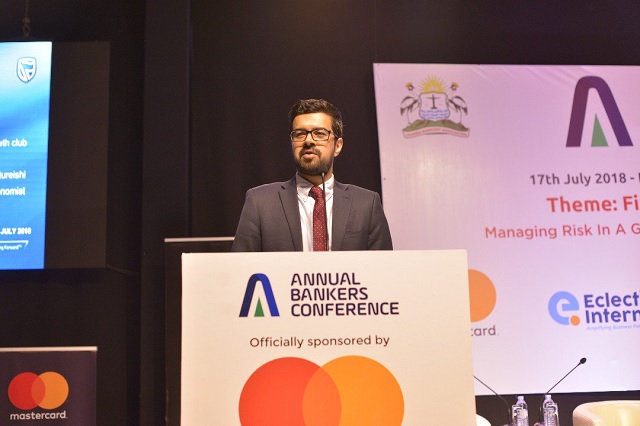
Kampala, Uganda | THE INDEPENDENT | The government is getting many of its economic priorities wrong which could plunge it into deeper crisis even as it tries to recover from the effects of a three-year global slowdown, according to experts.
Economic and financial experts say the critical areas that need special attention include Agriculture, Tourism and Mining as well as prudent debt management, which could easily turn around the economic fortunes sustainably.
The Ministry of Finance, Planning and Economic Development has projected that the economy will grow at 5.2 percent this financial year and at 6 percent in 2023/24.
Jibran Qureishi, the Head of Research at the Standard Bank Group urged the government to make it a priority to clear what it owes the Bank of Uganda as demanded by the International Monetary Fund because it will give a wrong image internationally on Uganda’s financial market.
Qureishi hailed Uganda for its cautious borrowing compared to other countries in the region, though this does not mean that it is in a very safe position. He says for example, that Uganda has ensured lower ratio of commercial loans as part of total debt compared to others like Kenya, Zambia, Angola or even Ghana which announced it was defaulting on debt repayment staring this year. He says if countries like Uganda are to borrow, more of the credit should go towards productive sectors like agriculture.
Qureishi said much as Uganda’s debt level is just around 50 percent of GDP while other countries have already recorded higher figures, it is the ratio of the commercial loans to the total burden which should be worrying.
Currently, such loans account for eight percent of the debt stock, having grown from nil 10 years ago, while Kenya’s has grown from six percent to more than 30 percent.
Angola had the highest amount of commercial loans as fraction of total loan at about 80 percent until recently when the country got relief from its commercial lenders, mainly China. By prioritizing infrastructure development, the African countries went for commercial loans, which, unfortunately attract much higher interest rates.
Speaking at the 2023 Stanbic Global Financial Markets Forum in Kampala, Economist on Tuesday, Dr Fred Muhumuza warned that the government is acquiring too much expensive debt especially in form of government treasuries.
He said that in fact the treasures should not be categorised as domestic borrowing because a good part of them are held by foreign investors because of the high interest rates offered by Bank of Uganda.
Standard Bank’s Qureishi warned that Uganda will soon find it harder to continue paying the high yields of treasury bills and bonds, and that it is risky just in case there is a global financial crisis. He says that unfortunately, the only way to reduce this is by curbing the high rates of public spending.
The Ministry of Finance last week issued a circular notifying government agencies and ministries that it intended to suspend borrowing starting next financial year. It also announced the suspension of several activities to reduce spending.
Muhumuza also criticised government approach on modernization of agriculture, saying it is opting for costlier means. He says while the sector has for long been considered the backbone of the economy and Uganda a food basket for the region, the country actually does not have enough food for itself.
According to Muhumuza, if the government is to use irrigation for areas vulnerable to drought, then a lot of resources have to be applied. He however, says that the cheaper and more sustainable solution should be the introduction of resistant seeds.
The bid to increase resources towards the agriculture sector as a matter of priority was also supported by Joseline Kateeba, Managing Director Crest Foam Uganda because of its linkages to other sectors.
According to her, agriculture is not just for increased availability of food for people to eat, but that it increases the spending power of farming communities which account for the majority of Ugandans.
In turn, this will lead to high purchasing power for industrial products and boost industrialisation.
Bank of Uganda Deputy Governor, Michael Atingi-Ego vowed that the bank will use any means available, whether traditional or not, to deal with any threat to ensure macroeconomic stability.
The Bank of Uganda raised the Central Bank Rate up to 10 percent as the country battled rising inflation between April and December 2022, an approach that was criticized as hurting households and smallholder enterprises instead.
****
URN
 The Independent Uganda: You get the Truth we Pay the Price
The Independent Uganda: You get the Truth we Pay the Price


